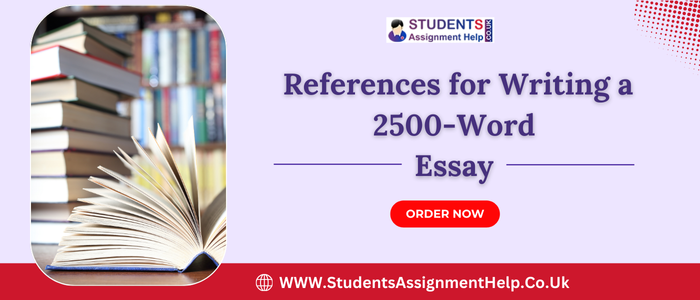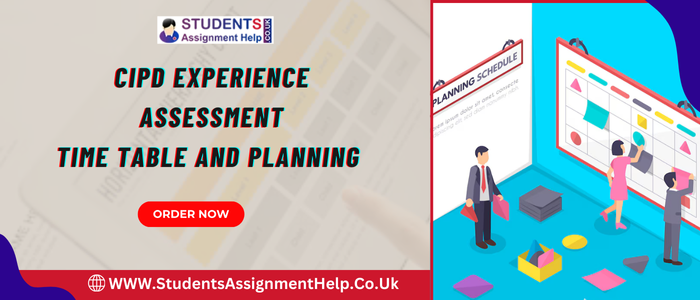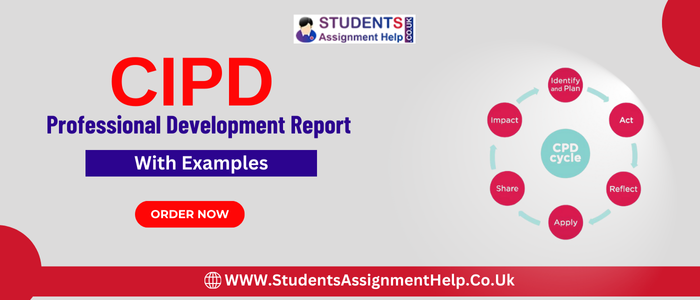How Many References for a 2500-Word Essay?
It’s actually almost ironic because one of the questions students often pose when writing their academic papers includes, “How many references are acceptable for a 2,500-word paper?” The answer is 15-25, but ideally it helps in appreciating how to approach referencing, which reforms ones work to the next level of academic height. In this detailed manual, the following topics are discussed: the number of references as a perfect number, the relevance of quality over quantity, and academic writing principles in the United Kingdom.

Why Are References Important in Academic Writing?
References are crucial in academic writing because they:
- Support Your Arguments: You need to put a reference as a way of supporting what you say through research.
- Demonstrate Research Skills: They prove you have configured with related articles.
- Avoid Plagiarism: In some cases, there is a provision of a quotation which is performed by stating the source correctly.
- Enhance Academic Rigor: Subject references are also important and properly chosen references are surely an indication of depth of thinking as well as critical analysis.
In UK universities, referencing is not just a formality but a critical element of academic integrity and scholarly work.
General Guidelines for Referencing a 2,500-word Essay
1. Average Number of References
While most writing pieces, including the 2,500-word essay, are expected to have between 15 to 25 reference sources. This estimate is based on the assumption that:
- You’re engaging with a range of sources to provide a balanced perspective.
- The essay requires critical analysis, not just descriptive writing.
cta_essay_sample_1
2. Factors Influencing the Number of References
The exact number of references will vary depending on:
- Essay Type: Argumentative essays may require more references to support different viewpoints, while reflective essays may rely more on personal insights.
- Discipline: STEM subjects may require fewer references, focusing on key studies, while humanities essays may need extensive citations.
- Assignment Guidelines: Always check specific requirements from your lecturer or module handbook.
- Depth of Analysis: Essays requiring deeper critical evaluation often need more sources to back up complex arguments.
3. Reference-to-Word Ratio
A common rule of thumb is 1 reference per 100-150 words. However, this is not a strict rule, and quality always takes precedence over quantity.
Balancing Quantity and Quality
1. Focus on Relevance
You better submit an essay with 15 great suitable sources rather than include 30 less useful ones. Avoid using general non-academic sources such as random websites and crawler journals, books instead opt for peer-reviewed journals, books and academic credible websites.
2. Primary vs Secondary Sources
- Primary Sources: Original materials like research studies, historical documents, or works of art. These are essential for providing direct evidence.
- Secondary Sources: Analyses, interpretations, or critiques of primary sources. These are useful for supporting and contextualising your argument.
Use a mix of both to strengthen your essay.
cta_essay_sample_2
3. Critical Engagement Over Volume
UK universities value critical thinking over mere summarisation. Instead of citing numerous sources superficially, engage deeply with fewer references. For instance:
- Compare and contrast viewpoints.
- Discuss the limitations of a study.
- Highlight gaps in existing research.
How to Distribute References Across Your Essay
1. Introduction
The introduction sets the stage and outlines your essay’s scope. Use 1-3 references to:
- Define key terms.
- Provide background information.
- Support your thesis statement with a foundational source.
2. Main Body
The main body is where most references will appear. Aim for 2-4 references per paragraph, depending on:
- The complexity of the argument.
- The need to support multiple points.
For example, in a paragraph discussing climate change, you might:
- Cite a study on global temperature trends.
- Reference a policy paper on carbon emissions.
- Contrast with a critical article questioning current methodologies.
cta_services_2
3. Conclusion
The conclusion summarises your findings and restates your argument. Use 1-2 references if needed, but avoid introducing new sources. Instead, reiterate the significance of previously cited works.
Choosing the Right Referencing Style
Some referencing style commonly used by UK universities include Harvard, APA, MLA and Chicago systems of referencing. Ensure you:
- Follow the specified style in your assignment brief.
- Ensure you maintain proper formatting all throughout your writing of the essay.
- Get to know with style guides or referencing resources such as Zotero, EndNote or RefWorks.
For example, in Harvard style:
- In-text citation: (Smith, 2021)
- Reference list: Smith, J. (2021). Title of the Book. London: Academic Press.
Common Referencing Mistakes to Avoid
1. Over-Reliance on a Few Sources
Avoid citing the same few authors repeatedly. This limits the breadth of your research and weakens your essay’s credibility.
2. Using Outdated Sources
Prioritise recent publications, especially in fast-evolving fields like technology or medicine. Exceptions include seminal works that remain relevant.
3. Incorrect Formatting
Inconsistent or incorrect referencing can lead to lost marks. Double-check every citation against the required style guide.
4. Neglecting to Cite
Failing to credit sources, even unintentionally, constitutes plagiarism. Always cite when in doubt.
cta_essay_sample_3
Practical Tips for Effective Referencing
- Start Early: Gather and organise references during your research phase.
- Use Digital Tools: Reference managers simplify citation and formatting.
- Keep Notes: Track key points from each source to streamline your writing process.
- Review University Guidelines: Ensure compliance with specific requirements.
Final Thoughts
In general it is deemed appropriate to use about 15 to 25 references in a 2,500 word essay; however this depends with the discipline, type of essay, and intensity of analysis needed. But you should always bear in mind that quality always comes first before quantity. Approach each source with the critical thinking, professionalism and adherence the guidelines of your university. That way, the targets of the assignment will be achieved and even more, seeing your research and analytical skills in the essay.
Writing a good and professional essay always requires citation and reference section and it becomes easier as you practice. For any learner whether in their first year of study or those in their final year, referencing is one of the most important aspects to consider to be a successful academic in the UK.
cta_services_3
FAQs About Referencing a 2,500-word Essay
Q1: Can I use too many references?
Yes. Overloading your essay with references can dilute your argument and reduce originality. Aim for balance and focus on critical engagement.
Q2: Should all sources be academic?
Not necessarily. Credible non-academic sources such as government publications or reputable newspapers can also be considered for a particular topic the general rule however is to rely mostly on academic sources.
Q3: Can I cite the same source multiple times?
Yes. If a source is important in a given context, one can give many references to that source but not to the extent of boring the readers.
Q4: What if my essay guidelines don’t specify the number of references?
Again, if you’re given no specification on the number of references, then, especially for a 2,500-word essay, try to use between 15 and 25 sources. As may be dictated by your specific area of interest or the level of analysis needed to be done in relation to your topic.
Q5: Are older sources still valuable?
Yes, but only if they are seminal works or foundational texts in your field. Otherwise, prioritise recent and up-to-date research.















